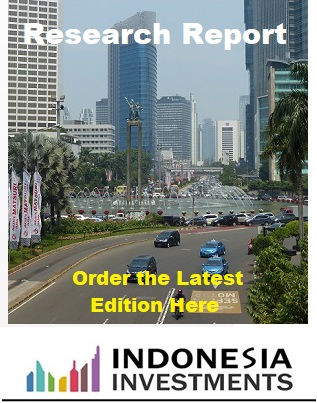Indonesia Delays Implementation Coal & Palm Oil Insurance Regulation
Both Indonesia's Trade Ministry and the Indonesian Coal Mining Association (APBI) confirmed that the mandatory national insurance for coal and crude palm oil (CPO) exports regulation has been postponed by another six months. Thus the regulation is now expected to come into effect per 1 February 2019.
In October 2017 Indonesia released Trade Ministry Regulation No. 82/2017 on the Terms of Use of National Shipping and Insurance Companies for the Export and Import of Certain Goods. This regulation made it mandatory for Indonesian shipments of coal and CPO to use (1) Indonesian ships and (2) Indonesian insurance. The aim of this regulation is to boost the role of Indonesia's domestic shipping industry and to save foreign currency.
The regulation was originally planned to be imposed in May 2018. However, it ignited fierce criticism and concern whether the new regulation would have a negative affect on Indonesia's export industry as domestic shipping capacity remains insufficient. Therefore, the government decided to delay the implementation of the regulation.
Strong criticism particularly stemmed from Indonesia's coal mining industry. For example, Hendra Sinadia, Deputy Executive Director of APBI, said Indonesian coal exports average 30-35 million metric tons per month. However, shipping capacity of Indonesian-flagged vessels can only cover slightly over 4 million metric tons per month, hence around 95 percent of Indonesia's coal exports are dependent on foreign-owned vessels. Thus, imposing the Trade Ministry regulation would have a massive negative impact on coal exports.
Moreover, most of Indonesia's coal exports are sold on the lower risk free-on-board (FOB) basis, meaning insurance is the responsibility of the buyer. Thus, the regulation would force foreign buyers to use Indonesian insurance.

Sinadia added that Indonesian vessels are not as competitive compared to their foreign counterparts because local exporters have to pay higher fuel costs as well as a higher premium for local shipping vessels. That explains why few exporters tend to select an Indonesian-flagged vessel.
Meanwhile, Indonesian coal miners are also burdened by the domestic market obligation (DMO). Through the DMO the Indonesian government forces local coal miners to supply part of their coal production to the domestic market at a low price (capped at a maximum of USD $70 per metric ton), specifically to coal-fired power plants as there is a real need for an increase in the nation's electricity supply.
Regarding the mandatory local insurance for coal and CPO exports, coal miners complained that they only received a list of insurance companies one week ago. This was another reason why the new regulation is unworkable and needs to be delayed. There are currently 73 Indonesian insurance firms that cover coal and CPO shipping.
The next six months will serve as a transition period. However, the Indonesian government and stakeholders will still need to draw up a more detailed timeline. Sinadia also said Trade Ministry Regulation No. 82/2017 will be revised in the next few weeks after Indonesian Trade Minister Enggartiasto Lukita returns from a visit to the United States.
-
Poll Indonesia Investments:
Who would you vote for in Indonesia's 2019 presidential election?
Voting possible: -
Results
- Joko Widodo (57.6%)
- Prabowo Subianto (31.9%)
- No opinion (5.7%)
- Someone else (4.8%)
Total amount of votes: 16331

